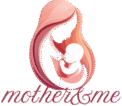Pregnancy is a beautiful and transformative journey. As a nurse and mother care educator who has supported hundreds of women in their prenatal stages, I know how crucial the first trimester is for both the mother and the baby. This phase marks the beginning of a life and sets the foundation for your baby’s health. Understanding baby development in first trimester week by week empowers mothers to care for themselves with confidence and clarity. Whether you’re preparing for pregnancy, newly expecting, or navigating early changes, this guide will help you track each week’s milestones, from fertilization to the end of the twelfth week. Backed by medical research and practical insights, this is your go-to first trimester pregnancy baby milestones guide.
Table of Contents
ToggleWhat Is the First Trimester of Pregnancy?
The first trimester covers weeks 1 to 12 of pregnancy. It is often the most sensitive time, as your baby’s vital organs begin to form. During these weeks, the embryo develops into a fetus, and changes occur rapidly. Alongside physical developments, hormonal fluctuations cause noticeable shifts in your body—such as nausea, fatigue, and breast tenderness.
This is also the trimester when most miscarriages occur, often due to chromosomal abnormalities (Normally, every human has 46 chromosomes .23 from the mother and 23 from the father. These chromosomes carry genes that guide the baby’s growth and development). Therefore, tracking fetal development stages in first trimester is not just exciting, but also medically significant.
Baby Development in First Trimester Week by Week
Let’s explore what’s happening to your little one inside the womb, each week:
Week 1–2: Preconception and Ovulation

- Development Stage: No embryo yet; body prepares for ovulation.
- Mother’s Body: Uterus lining thickens. Hormones rise.
- Action Point: Start folic acid; adopt healthy eating habits.
Self-Care Tip: Drink jeera (cumin) water daily to reduce bloating and regulate cycles.
Week 3: Fertilization

- Development: The sperm fertilizes the egg, creating a zygote.
- Milestone: First cellular divisions start.
- Tip: You may not feel any symptoms yet, but your baby’s journey has begun.
Home Remedy: Avoid overheating the body; include buttermilk in your diet.
Week 4: Implantation and hCG Production

- Development: Embryo implants into the uterus; hCG hormone increases.
- Signs: Light spotting (implantation bleeding).
- Test: Home pregnancy tests may show positive.
Remedy: Apply sandalwood paste on the forehead to relieve early headaches.
Week 5: Early Embryonic Stage -Major Organ Systems Begin

- Development: Heart begins to form and beat faintly.
- Mother: Morning sickness and bloating may begin.
- Doctor Visit: Schedule your first prenatal appointment.
Domestic Care Tip: Sip ginger tea or eat a small piece of dry ginger to ease nausea.
Week 6: Neural Tube Forms & Heartbeat Begins

- Baby Development: Brain and spinal cord begin to develop.
- Heartbeat: May be visible on ultrasound.
- Advice: Continue folate; avoid raw/processed foods.
- Nutrition: Eat walnuts and soaked almonds to support brain development.
Week 7: Limb Buds and Facial Development

- Growth: Tiny arm and leg buds form.
- Changes: Mood swings and fatigue are common.
- Nutrition: High-protein, iron-rich diet supports development.
Home Nursing Tip: Massage your feet lightly with warm mustard oil to reduce fatigue.
Week 8: Facial Features and Fingers Appear

- Baby Changes: Eyes, nose, lips start to take shape.
- Feeling: You may feel more tired or dizzy.
- Check-Up: Blood and urine screening may be done.
Home Tip: Avoid loud noises, and take warm water sips to soothe indigestion.
Week 9: First Movements Begin

- Movement: Baby starts small, reflexive movements.
- Though not felt: These are vital for muscle development.
- Tip: Include DHA-rich foods for brain growth.
Food Tip: Add omega-3 rich foods like flaxseeds or chia seeds to your daily diet.
Week 10: Organ Growth

- Development: Liver, kidneys, intestines mature further.
- Size: Baby is about the size of a prune.
- Tip: Manage nausea with ginger or lemon water.
Domestic Tip: Use ajwain water (carom seeds) to relieve bloating and gas.
Week 11: External Genitals and Bones Form

- Gender: Baby’s sex organs begin to differentiate.
- Mother: Slight belly bulge may appear.
- Doctor Visit: Optional first trimester genetic screening.
Relaxation Tip: Practice mild pranayama (breathing techniques) daily.
Week 12: Fully Formed Fetus- Fingernails, Vocal Cords, and More

- Reflexes: Baby can stretch, yawn, and swallow, baby swallows & kicks
- Milestone: First trimester ends, and risk of miscarriage lowers.
- Ultrasound: Nuchal translucency scan to check development.
Comfort Tip: Use a soft pillow between your legs while sleeping to ease lower back pain.
Additional Domestic Tips for First Trimester Pregnancy Care
Apply coconut oil to prevent early stretch marks.
Use natural fragrances like lavender for calming effects.
Stay barefoot on grass for 10 minutes in the morning (helps reduce stress).
Practice garbh sanskar: Listen to soft music or spiritual chants.
Avoid spicy and oily foods to minimize heartburn.
This first trimester fetal development chart showcases how incredibly dynamic the early weeks are. It’s like watching a miracle unfold week by week.
Mother’s Body Changes: What to Expect in First Trimester of Pregnancy
During this trimester, your body undergoes several changes:
- Fatigue
- Mood swings
- Food aversions and cravings
- Morning sickness
- Increased urination
Every mother is different. While some women glow, others struggle with energy. Tracking your symptoms alongside the baby development chart in womb can help reduce stress
First Trimester Checklist: Baby Growth in Womb Essentials
Here are must-do activities to support your baby:
- Begin prenatal vitamins with iron and folate
- Drink 2.5+ liters of water daily
- Eat fresh, home-cooked meals (avoid street food)
- Limit screen time and get 8 hours of sleep
- Practice breathing and pelvic floor exercises
- Avoid caffeine, alcohol, and smoking
These practices not only support baby brain development stages in womb but also prepare your body for labor.
What Can Affect Baby's Brain Development in the Womb?
- Nutritional deficiencies (folate, iron)
- Maternal infections
- Exposure to toxins (alcohol, nicotine, pollution)
- Chronic stress and anxiety
To encourage optimal brain development activities for baby in the womb, consider:
- Talking to your baby
- Playing soft classical music
- Staying mentally calm and emotionally positive
When to Worry: Baby Not Developing in Womb Signs
- No fetal heartbeat by Week 7–8
- Extremely low hCG levels
- Continued spotting and severe cramps
Always consult your healthcare provider if anything feels off. An early pregnancy baby development guide helps track progress, but nothing replaces clinical advice.
Conclusion: How Your Baby Grows in the First 12 Weeks of Pregnancy
The Baby Development in First Trimester Week by Week is a remarkable blend of science, nature, and nurture. From a single cell to a mini human with reflexes and organs, your baby undergoes incredible changes.
Staying informed about baby development in first trimester week by week helps you feel empowered and calm. Whether you’re managing symptoms or excitedly planning your baby’s future, remember—every week matters.
Frequently Asked Questions (FAQs)
By the 12th week, your baby has fingers, toes, internal organs, and can even make tiny movements. It marks the end of the first trimester.
The neural tube, which forms the brain and spine, begins developing as early as Week 5. Nutrition plays a key role in baby brain development in womb.
Not usually. Most first-time moms start feeling movements (quickening) between weeks 18–22.
Eat nutritious food, manage stress, stay hydrated, avoid harmful substances, and go for regular checkups.
Baby starts developing immediately after conception, with organ systems forming from Week 5 onwards.
By Week 12, the baby is about 2.5 inches long. Belly visibility varies depending on body type.
That refers to an ectopic pregnancy—a medical emergency where the embryo implants outside the uterus, usually in the fallopian tube.
The baby’s heart begins to beat around week 6 of pregnancy. At this stage, it beats approximately 120 to 160 times per minute and can often be detected via ultrasound.
During the first trimester (weeks 1–12), major developments include:
- Formation of the brain and spinal cord
- Development of the heart and circulatory system
- Beginning of limb formation
- Development of facial features
- Initiation of organ systems like the digestive and urinary systems
Typically, fetal movements are felt between weeks 18 to 22. While the baby may start moving as early as week 9, these movements are usually too subtle to be felt by the mother.
Consuming foods rich in folic acid, omega-3 fatty acids, and iron is beneficial. Examples include leafy greens, walnuts, flaxseeds, and fortified cereals.
Light spotting can occur during implantation, typically around week 4. However, any bleeding should be discussed with a healthcare provider to rule out complications.
By week 12, the baby is approximately 2.5 to 3 inches long, about the size of a plum. All major organs have formed, and the baby begins to look more human-like.
Common tests include:
Blood tests to check for blood type, anemia, and infections
Ultrasound to confirm pregnancy and estimate due date
Nuchal translucency screening for chromosomal abnormalities
It’s advisable to:
Avoid alcohol, tobacco, and illicit drugs
Limit caffeine intake
Eat a balanced diet rich in essential nutrients
Engage in regular, moderate exercise
Get adequate rest and manage stress
Also Read:






